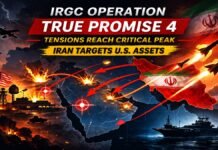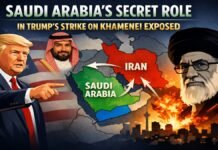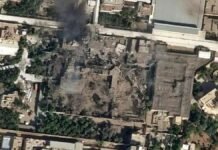
Key Points
- PM Modi clarified to President Trump that Operation Sindoor was paused solely at Pakistan’s request, not due to US mediation or any trade talks.
- India reiterated its consistent policy: no acceptance of third-party mediation on issues with Pakistan, including Kashmir.
- Modi briefed Trump on India’s decisive and precise military response to terrorism after the Pahalgam attack, targeting terror infrastructure across Pakistan.
- Trump invited Modi to the US after the G7 Summit; Modi declined citing prior commitments, but invited Trump to India for the upcoming Quad Summit, which Trump accepted.
- Both leaders discussed counterterrorism, with Trump expressing condolences for the Pahalgam victims and affirming US support for India’s anti-terror efforts.
New Delhi: In a pivotal 35-minute phone conversation following the G7 Summit in Canada, Indian Prime Minister Narendra Modi firmly set the record straight with US President Donald Trump regarding the recent India-Pakistan ceasefire. Modi categorically stated that the pause in Operation Sindoor a major Indian military campaign against terror bases in Pakistan was enacted solely at Pakistan’s request.
Foreign Secretary Vikram Misri, briefing the press, emphasized that Modi told Trump, “India has never accepted, does not accept, and will never accept third-party mediation on matters with Pakistan, including Kashmir.” This stance reflects a long-standing political consensus in India, with Modi further clarifying that no trade-related issues were discussed at any point during the hostilities.
Operation Sindoor: India’s Decisive Response to Terror
During the call, Modi detailed India’s actions under Operation Sindoor, launched in response to the deadly Pahalgam terrorist attack on April 22, which killed 26 civilians. The operation saw coordinated strikes by the Indian Army, Air Force, and Navy against terror infrastructure and key military targets in Pakistan and Pakistan-occupied Kashmir. India’s strikes rendered several Pakistani air bases inoperable and inflicted significant damage on military assets, demonstrating advanced joint warfare and air defense capabilities.
Modi told Trump that India’s response was “measured, precise, and non-escalatory,” but made it clear that any future aggression from Pakistan would be met with even stronger retaliation. He also reiterated that India now regards terrorism not as a proxy war, but as an act of war, underscoring a shift in Indian policy towards zero tolerance for cross-border terrorism.
Ceasefire: Direct Talks, No US Role
Contrary to Trump’s repeated public claims that the US played a mediating role in brokering the ceasefire, Modi stressed that all negotiations to halt military action were conducted directly between Indian and Pakistani military channels, and only after a request from Pakistan. There was no involvement of the US or any discussion of leveraging trade to influence India’s decisions, as had been suggested by Trump in earlier statements.
Diplomatic Invitations: Modi Declines US Visit, Invites Trump to India
After the G7 Summit, President Trump invited Modi to visit the US. Modi, however, declined the invitation due to prior commitments, including a scheduled visit to Croatia the first by an Indian Prime Minister to the Balkan nation. Instead, Modi invited Trump to India for the upcoming Quad Summit, an invitation that Trump enthusiastically accepted. The Quad, comprising the US, India, Japan, and Australia, is a key strategic forum for the Indo-Pacific region.
Counterterrorism and Condolences
This conversation marked the first direct interaction between the two leaders since the Pahalgam attack. Trump expressed his condolences for the victims and reaffirmed US support for India’s fight against terrorism. Modi, in turn, reiterated India’s resolve to respond decisively to any terror threats, stating, “India will reply to bullets with shells”.



















































